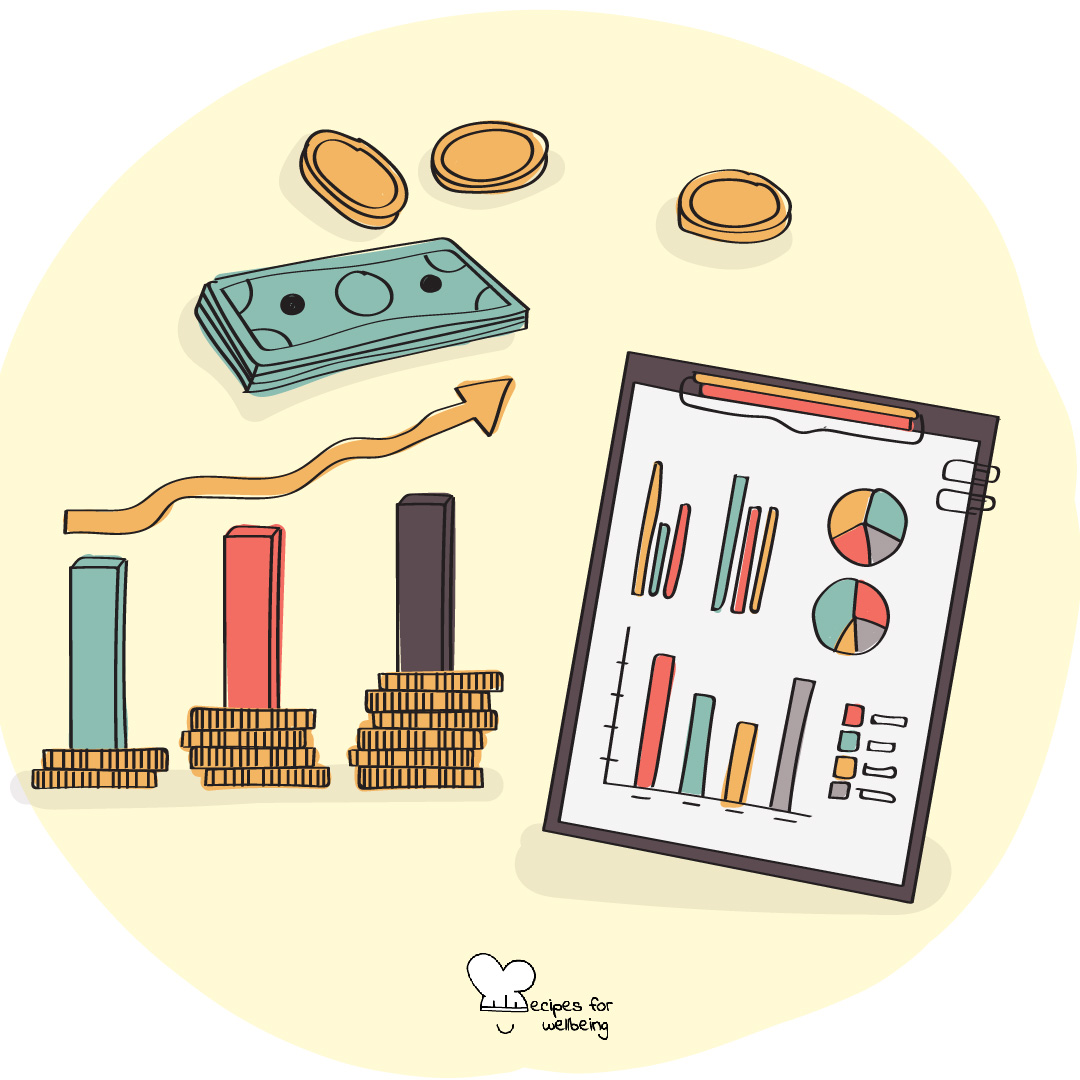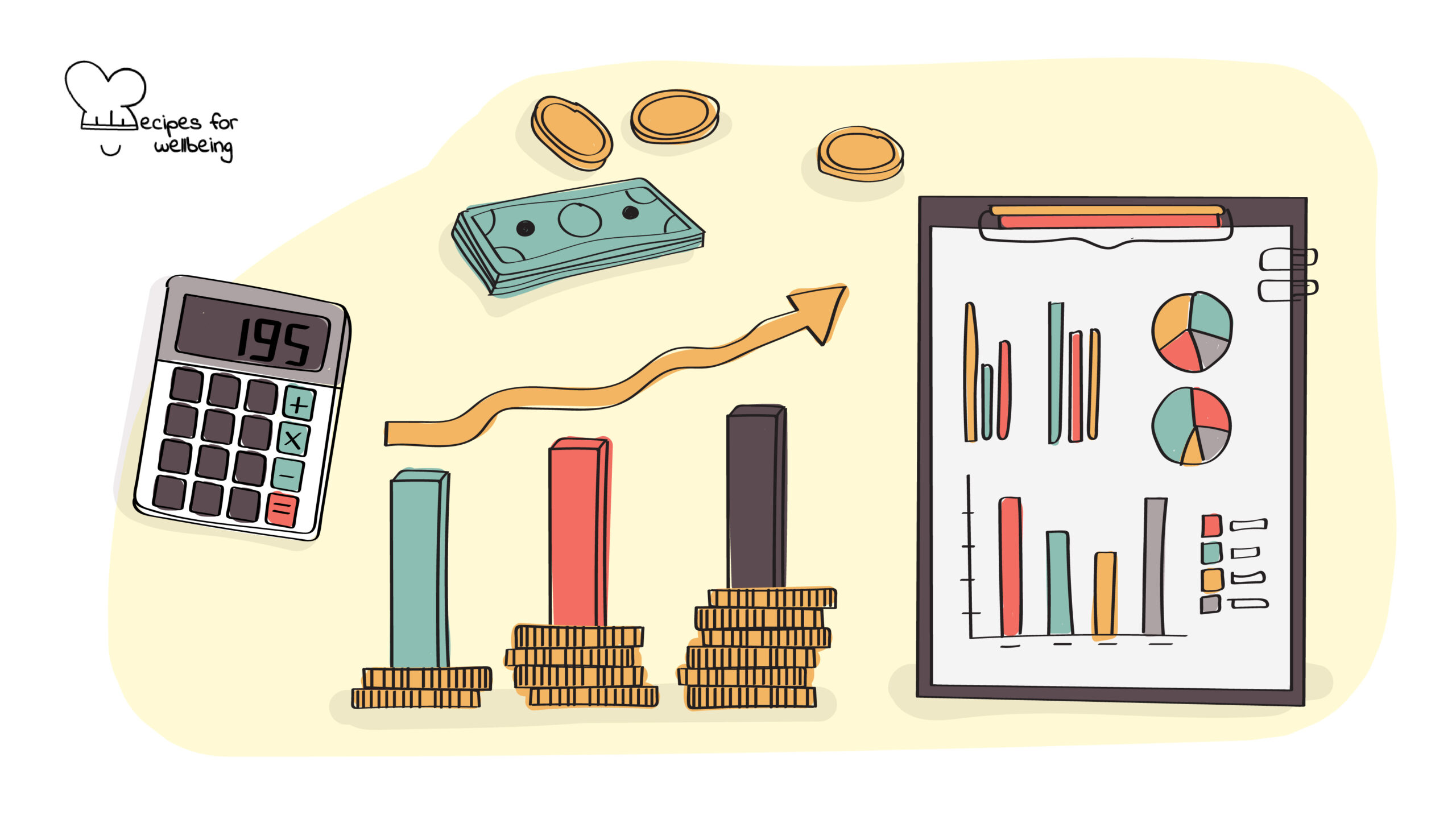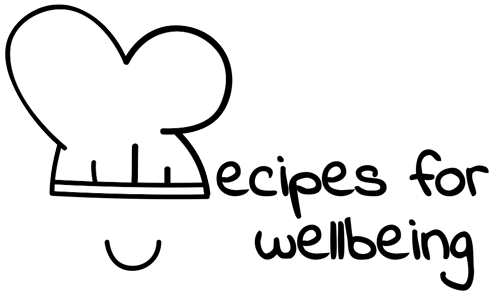
Economics for everyone
Only when the general public displays awareness of these issues will professional economists find it impossible to browbeat them by declaring themselves to be custodians of scientific truths. ―Ha-Joon Chang
👥 Serves: 26-40 people, 41+ people
🎚 Difficulty: Hard
⏳ Total time: Ongoing
🥣 Ingredients: Space for discussion, open-mindedness
🤓 Wholebeing Domains: Community, Liberatory Learning
💪 Wholebeing Skills: Accountability, Autonomy, Collaboration, Community-building, Equity, Inclusion, Liberation

Economics for everyone
📝 Description
Change the status quo to make the economy for everyone.
What comes to mind when you think about the economy?
Generally, a common notion is that economy (and economics!) is a mysterious, technical, baffling subject, full of confusing jargon, better left to a small group of experts. But why can’t we all be experts on the economy?! After all, whether or not we are involved in it actively, we are still involved in it and impacted by it daily. It’s all about how we work, what we generate, and how that then gets distributed, who does what, who gets what, and what they later do with it.
Because we are all involved in it, we should all have a voice and a say in its doings. Consider other large concepts that you feel passionate about as a changemaker – whether that be abortion laws or global warming. You have formed these ideas that you have and share due to research – not (always) due to formal education on the topic. So if you can be passionately lobbying and involved in topics such as these, why not within economics, too?
In regards to wellbeing, having knowledge of economics increases your confidence and your ability in understanding what is happening in your community and achieving healthier standards of living, for you and for your community. You will also notice a reduction in the mental, physical, and emotional stress experienced in times of financial hardship. And you will observe an increase in social cohesion, trust, and innovation in your community. A community that is confident about economics and actively involved in defining its own economic priorities leads to a more transparent, democratic, and engaged society.
This recipe has been adapted by the Royal Society for Arts’ work on the economy and their innovative Citizens Economic Council by our wellbeing content writer collaborator Marissa Del Mistro.
👣 Steps
Step 1 – Improve personal knowledge of the economy
Improving knowledge leads to better confidence and more involvement. When it comes to learning, there is no one-size-fits-all approach. Rather, educating yourself around the economy will be most successful based on your specific needs, gender, geography, disability, education and literacy levels, employment status, and life stage. Also, please consider your preferred learning style. Are you a visual, auditory, or tactile learner? What are your preferred learning formats: solo learning, group sessions, workshops, or 1:1 coaching?
Please note that learning about the economy has the potential to be triggering or challenging for people who have felt marginalised from the mainstream economy and may feel intimidated and unwelcomed.
Some suggestions to improve economic knowledge include:
- Subscriptions to financial newsletters or magazines.
- Podcasts such as The Sound of Economics, Social Economy Talks, and Planet Money.
- Take out personal finance books from the library such as Freakonomics by Steven D Levitt, The Clash That Defined Modern Economics by Keynes Hayek, Black Womeneconomics by Daan Struyven, Gizelle George-Joseph and Daniel Milo, and Creating a World Without Poverty: Social Business and the Future of Capitalism by Muhammad Yunus.
- Opt for the free course online such as at Marginal Revolution University or Stanford University.
- Watch informative YouTube videos on MIT OpenCourseware.
Step 2 – Increase transparency and accountability
Transparency goes hand in hand with accountability and both are key aspects of a functioning, democratic society. Without transparency, it is nearly impossible to trust and understand the economic decisions being made by the governments.
What is needed is clear information behind the political and social decisions of economic policies and choices. When you keep up with the decisions being made that directly impacts you, including the allocation of resources (i.e. your tax money), it can make the government more accountable, and lead to improved collaboration and change.
As such, you should lobby for your government to hold regular municipal meetings, offer up meeting minutes, and be able to justify all spending. And, if you are not pleased with what is going on, you should take affirmative action and express your views and concerns freely and openly – just like you would do regarding a concern about any other policy or big decision that trickles down and impacts the day to day.
Imagine the impacts if there were regulated, regular forums to help narrow the bridge for direct response to any – very valid questions, comments, or criticisms? You could even be assisted by relevant NGO or non-partisan groups.
Step 3 – Space for creative approaches and deliberation about the economy
There are 9 schools of theory that exist about economics. So, depending on who you speak to and when you speak to them, they may explain to you why their school of thought is best, and why it works. This is good, because deliberating the economy allows for deeper understanding of what you as an individual value, prioritise and want out of the economy, while also informing and educating, and participating in the debate can ultimately lead to more informed, creative policy and decision making.
You and people around you should be included in discussions about economic decisions as you are rooted in the day-to-day reality, and therefore able to think more creatively about policies or proposals outside the standard status quo, that could ultimately better serve social and societal progress.
Being able to question, challenge or contemplate the ideas of economics and government, is the basis on which democracy stands.

